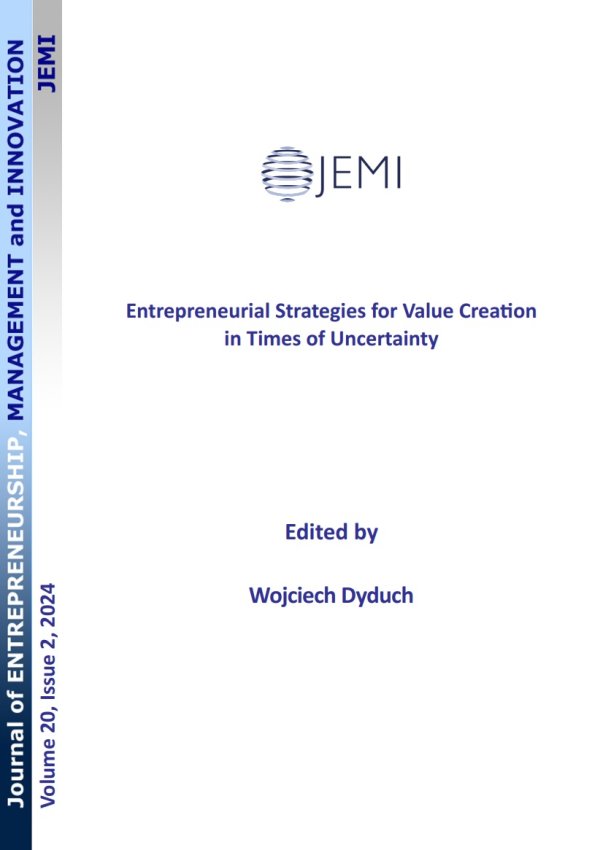Claudia D´Annunzio, Professor, MBA, National University of Central Buenos Aires, Centre for Studies in Management, Pinto 399, Tandil, Buenos Aires, Argentina; This email address is being protected from spambots. You need JavaScript enabled to view it..
Mariela Carattoli, Ph.D. Student, MBA and M.Sc, National University of Central Buenos Aires, Centre for Studies in Management, Pinto 399, Tandil, Buenos Aires, Argentina; This email address is being protected from spambots. You need JavaScript enabled to view it..
Dolores Dupleix, CONICET Fellowship, National University of Central Buenos Aires, Centre for Studies in Management, Pinto 399, Tandil, Buenos Aires, Argentina; This email address is being protected from spambots. You need JavaScript enabled to view it..
Abstract
Although recent evidence suggests that the development of dynamic capabilities (DC) is a key factor to gain and sustain competitive advantages to promote firm ́s growth, the question of how SMEs create, identify, and seize opportunities for growth have not been fully explored, particularly in developing countries with scarce resources. The aim of this study is to shed light on how SMEs develop capabilities to grow in the specific context of developing countries with resources constraints. To achieve a detailed description of the processes involved, this study applies a qualitative methodology based on a comparative case study of eight SMEs within the software and tourism industries in Argentine, which have been previously identified as dynamic sectors with high growth potential. Our findings suggest that SMEs develop DC mainly through an emerging process of iterative experimentation rather than through strategic planning. This process involves the coordination of organizational actions and resources, with managers playing a key role.
Keywords: firm´s growth, dynamic capabilities, SMEs, developing countries.






